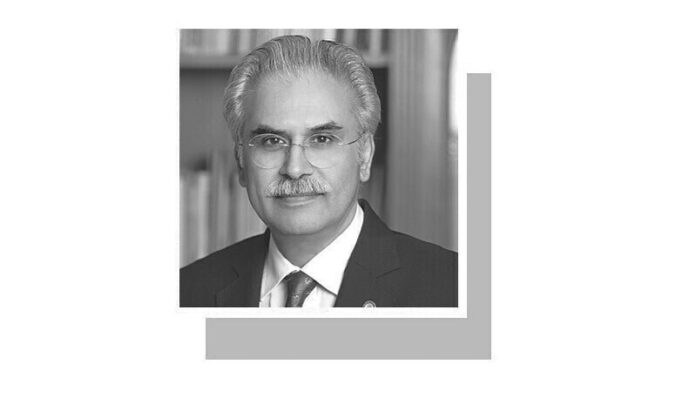ISCHEMIC heart disease, diabetes, strokes, chronic obstructive pulmonary disease, chronic kidney disease and cirrhosis are among the top causes of death in Pakistan.
Together, these are called non-communicable diseases (NCDs), as opposed to communicable or infectious diseases, which are caused by bacteria, viruses or other living organisms. These are also called chronic diseases as, once they develop, they generally remain for the rest of one’s life.
Therapeutic interventions are basically meant to control them to minimise the damage. These diseases are on the rise in Pakistan. 2010 was the year when, for the first time, the burden of disease in Pakistan due to NCDs outweighed communicable diseases, and there has been no looking back. In 2019, there were around 0.83 million deaths caused by NCDs, as opposed to some 0.58m deaths due to infectious diseases the same year.
This is where lifestyle medicine enters the scene. This is a relatively new genera of medicine, which focuses primarily on lifestyle modification through medical advice. According to the American College of Lifestyle Medicine, “Lifestyle medicine is a medical specialty that uses therapeutic lifestyle interventions as a primary modality to treat chronic conditions including, but not limited to, cardiovascular diseases, type 2 diabetes, and obesity.
Lifestyle medicine-certified clinicians are trained to apply evidence-based, whole-person, prescriptive lifestyle changes to treat and, when used intensively, often reverse such conditions. Applying the six pillars of lifestyle medicine — a whole-food, plant-predominant eating pattern, physical activity, restorative sleep, stress management, avoidance of risky substances and positive social connections — also provides effective prevention for these conditions.“ The ACLM presents itself as a society of medical professionals united to reverse chronic disease.
Sound like a great idea.
Two weeks ago, I was invited to attend a weekend conference and retreat on lifestyle medicine in the Margalla Hills. The conference was organised by the Riphah Institute of Lifestyle Medicine, the first such institute in Pakistan.
The founder and omnipresent spirit behind the institute is Dr Shagufta Feroz, who has quietly rooted the sapling of lifestyle medicine in Pakistan and is tending it wholeheartedly along with her growing team. She also founded a Pakistan Association of Lifestyle Medicine in 2016, which is now a member organisation of the Lifestyle Medicine Global Alliance.
The pharmaceutical industry in Pakistan doesn’t seem to have any interest in lifestyle medicine, for obvious reasons. It was a pleasure not to see any pharmaceutical stalls or their product advertisements at this conference. I hope this trend continues.
Four questions kept hovering in my mind during this three-day conference and retreat. One, should lifestyle medicine be another medical specialty? Or should it be a normal way of medical practice to help people modify their lifestyles to prevent and effectively manage diseases? Two, how can lifestyle medicine be mainstreamed at the primary healthcare level? Three, how should our health professionals, not just doctors, be educated and trained in lifestyle medicine at the undergraduate level? And four, how should the medical and food industry and environmental agencies collaborate to minimise the risks to human health?
The writer is a former health minister, currently a professor of health systems & population health at Shifa Tameer-i-Millat University.
Published in Dawn, October 18th, 2024
Read More: Lifestyle medicine


